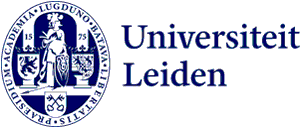31 search results for “colonial history” in the Staff website
-
 Anita van Dissel
Anita van DisselFaculty of Humanities
a.m.c.van.dissel@hum.leidenuniv.nl | +31 71 527 2760
-
 Esther Zwinkels
Esther ZwinkelsFaculty of Humanities
e.p.m.zwinkels@hum.leidenuniv.nl | +31 71 527 2727
-
 Wim Willems
Wim WillemsFaculty of Humanities
w.h.willems@fgga.leidenuniv.nl | +31 6 5374 5961
-
 Wim van den Doel
Wim van den DoelCollege van Bestuur
h.w.van.den.doel@bb.leidenuniv.nl | +31 71 527 2922
-
 Jessica Roitman
Jessica RoitmanFaculty of Humanities
j.v.roitman@hum.leidenuniv.nl | +31 71 527 2727
-
 Marcella Schute
Marcella SchuteFaculty of Humanities
m.c.r.schute@hum.leidenuniv.nl | +31 71 527 1646
-
by Gert Oostindie: Leiden University should also reflect on its colonial history
It is crucial that Leiden University reflects on its colonial history. These were the words of Cleveringa Professor Gert Oostindie in his inaugural lecture on 24 November. ‘As a university community, we must dare to hold up a mirror to ourselves and, where possible and necessary, also take concrete…
-
 Tristan Mostert
Tristan MostertFaculty of Humanities
t.mostert@hum.leidenuniv.nl | +31 71 527 1307
-
 Liesbeth Rosen Jacobson
Liesbeth Rosen JacobsonFaculty of Humanities
e.w.rosen.jacobson@hum.leidenuniv.nl | +31 71 527 1293
-
 Robert Ross
Robert RossFaculty of Humanities
r.j.ross@hum.leidenuniv.nl | +31 71 527 1646
-
 Geke Burger
Geke BurgerFaculty of Humanities
g.burger@hum.leidenuniv.nl | +31 71 527 2339
-
 Alicia Schrikker
Alicia SchrikkerFaculty of Humanities
a.f.schrikker@hum.leidenuniv.nl | +31 71 527 2769
-
 Luc Bulten
Luc BultenFaculty of Humanities
l.j.bulten@hum.leidenuniv.nl | +31 71 527 2706
-
 Lennart Bes
Lennart BesFaculty of Humanities
l.p.j.bes@hum.leidenuniv.nl | +31 71 527 2768
-
 Jos Gommans
Jos GommansFaculty of Humanities
j.j.l.gommans@hum.leidenuniv.nl | +31 71 527 2167
-
 Bente de Leede
Bente de LeedeFaculty of Humanities
b.m.de.leede@hum.leidenuniv.nl | +31 71 527 1646
-
 Leonor Faber-Jonker
Leonor Faber-JonkerAfrika-Studiecentrum
l.a.faber@asc.leidenuniv.nl | +31 71 527 2727
-
 Márcia Gonçalves
Márcia GonçalvesFaculty of Humanities
m.a.goncalves@hum.leidenuniv.nl | +31 71 527 2946
-
‘The university has many roots in the colonial past. How deep and wide were they?’
Historians recently started preliminary research on Leiden University’s role in colonialism and historical slavery. Our knowledge about this is too limited and fragmented. They are looking with fresh eyes at Leiden’s archives and collections. An interview with historians Alicia Schrikker and Ligia G…
-
 Fenneke Sysling
Fenneke SyslingFaculty of Humanities
f.h.sysling@hum.leidenuniv.nl | +31 71 527 2737
-
Abolition of slavery Memorial Year has begun
On 1 July – Keti Koti, in the year ahead, our university community will be able to reflect extensively on the history of slavery by engaging in research, education and many other activities.
-
Writing history together in the Transvaal
Alicia Schrikker doesn't usually get involved in urban history. As a senior lecturer, her research field is generally the colonial history of Asia and partly South Africa. So, the fact that she is going to carry out an urban history research project together with colleagues, is something that even she…
-
‘We have to stay alert and keep on feeling the past’
Space for open dialogue on historical slavery was created at the Keti Koti Table at Museum De Lakenhal, organised by Leiden University and the Municipality of Leiden. There, just metres away from 17th-century paintings, Leideners shared a ritual meal and spoke about the effects of slavery and our colonial…
-
Looted art returned to Sri Lanka: ‘It was a job tracing what came from where'
A cannon, a sabre, guns: these Sri Lankan objects had been in the Rijksmuseum for centuries. In early December, they were returned to Sri Lanka. Associate Professor of Colonial History Alicia Schrikker led the research that formed the basis for the restitution and published a volume on the findings…
-
Dutch armed forces were willing to accept high casualties in Indonesia
The decolonisation war in Indonesia was violent partly because the Dutch military operated on the conviction that ‘an uprising had to be forcibly suppressed.’ This what historian Christiaan Harinck from the KITLV discovered in his PhD research.
-
‘Dear Aunt Olga’ exhibition on the ties between Suriname and the Netherlands
The Surinamese-Dutch language, Parbo Beer and, of course, football. The ‘Dear Aunt Olga’ (‘Lieve tante Olga’) exhibition focuses on the shared Surinamese-Dutch culture. Full of cheer and with life experience to spare, ‘icon’ Aunt Olga (95) leads visitors through a shared history and does not shy away…
-
Exhibition on Anton de Kom’s second life, which began in Leiden
Few people would associate the name Anton de Kom with Leiden. Yet the Surinamese freedom fighter is the subject of an exhibition at Museum De Lakenhal.
-
Universiteit Leiden onderzoekt eigen slavernijverleden
Het College van Bestuur laat door een postdoc een eenjarig vooronderzoek doen naar het koloniale en slavernijverleden van de Universiteit Leiden.
-
Leiden researchers on king’s apology for the Netherlands historical role in slavery
In a speech on Keti Koti the Dutch king, Willem-Alexander, apologised on behalf of the royal family for the Netherlands’ historical role in slavery. What is the significance of this?
-
What did resistance look like in Indonesia during the Second World War?
Stories of resistance in the Second World War are widely covered in Dutch historiography: Hannie Schaft, Erik Hazelhoff Roelfzema, and Professor Cleveringa are some of the best known. But these accounts largely focus on the Dutch domestic perspective. On the other side of the world, a complex colonial…
-
Keti Koti Table
Diner | Dialoog
